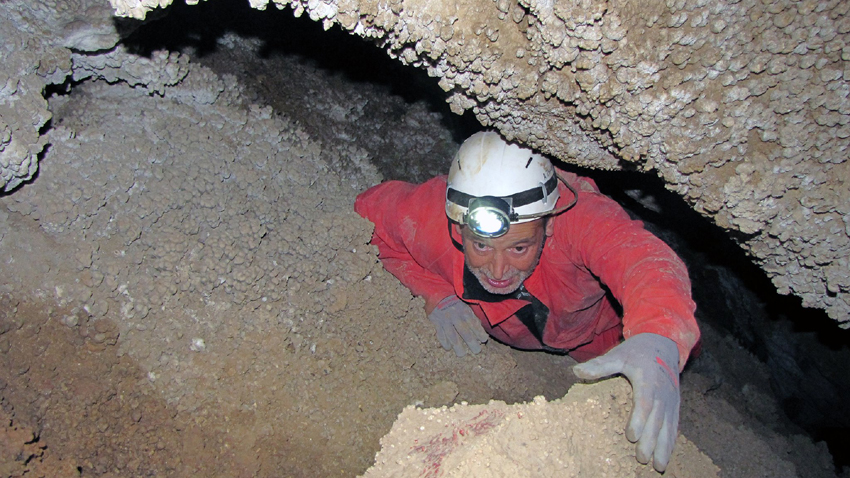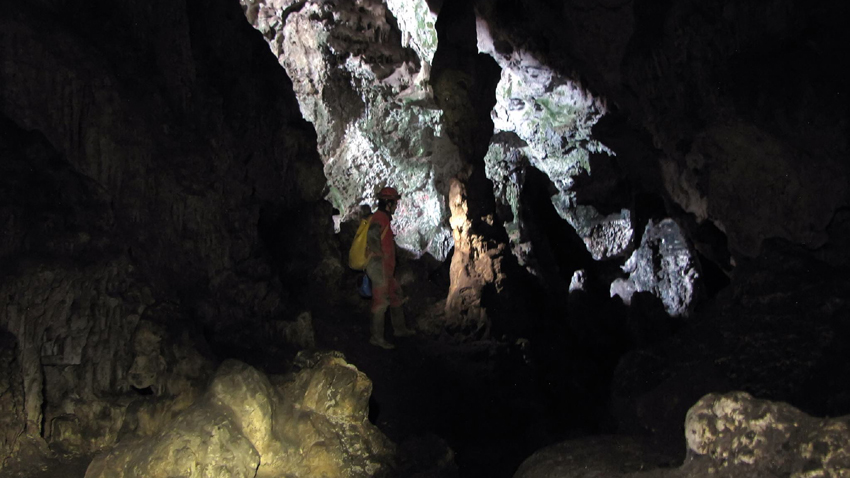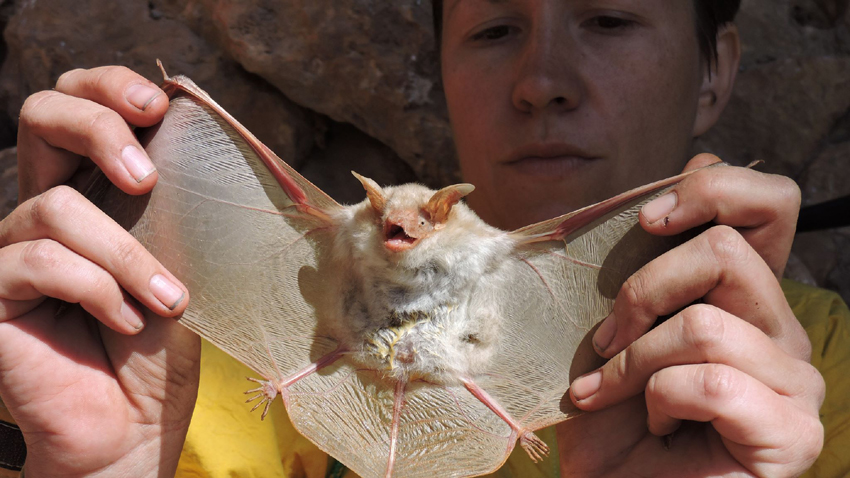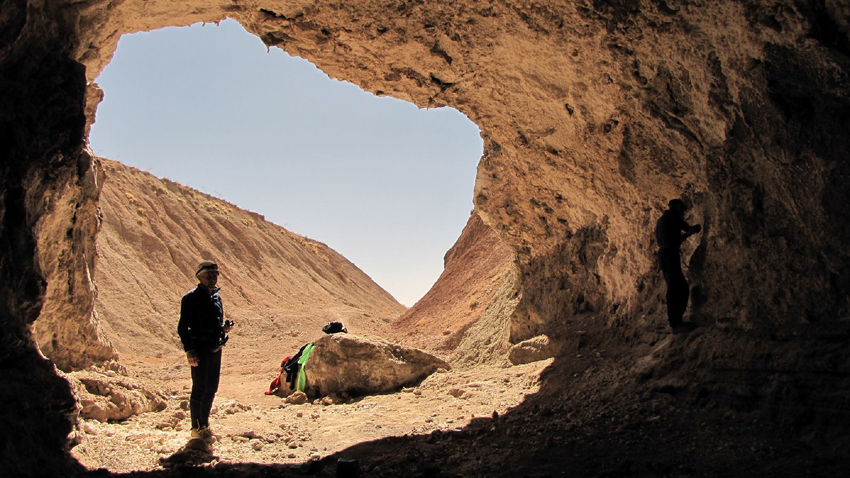Three years ago a group of Bulgarian cave rescuers led a training in Tunisia, in which Tunisians, Moroccans, Algerians and Iranians took part. One year later training was organized in Iran and 23 Iranian cavers took part in it. This was the beginning of a Bulgarian-Iranian partnership that has already given results. Iran is a desired destination for speleologists because of the great number of unstudied caves and the first Bulgarian expedition there is now a fact. 6 Bulgarians, a Polish and a  Romanian were part of the expedition. They went to the eastern regions of the country – two provinces near the borders with Afghanistan and Turkmenistan. There they studied thoroughly two caves – one situated near the city of Mashhad, which is the second biggest in Iran, and another some 400 kilometers in southern direction. Here is what Alexei Zhalov, leader of the expedition, told us:
Romanian were part of the expedition. They went to the eastern regions of the country – two provinces near the borders with Afghanistan and Turkmenistan. There they studied thoroughly two caves – one situated near the city of Mashhad, which is the second biggest in Iran, and another some 400 kilometers in southern direction. Here is what Alexei Zhalov, leader of the expedition, told us:
“The Iranian colleagues invited us to conduct two important studies for this region. The caves we studied were chosen in such a way that we were given the chance to make significant achievements as explorers. The first cave is called Karkas and its studying is a complex task. The goal of our study was to show that this is the longest cave in Iran. We worked for a day there, separated into three groups and mapped 800 meters, out of which 150 meters were completely unexplored. The underground cave galleries were very beautiful. Our team completed the task set by our hosts,” Alexey Zhalov says.
The second challenge was The Dragon’s Cave, situated at an altitude of 2400 meters. It is vertical and reaches a depth of 272 meters, making it the deepest one in Eastern Iran.

"You could say that the second part of the program was more tourism-oriented. We visited two more caves, one of which formed in rock salt. There are no such types of caves in Bulgaria and this was the first one Bulgarian speleologists enter. We had a number of social contacts and were welcomed by various institutions. The new contacts we established and those that we reaffirmed will be of great benefit in the future. We are ready to sign a cooperation agreement with the Iranian colleagues and we are already making plans for new expeditions next year. They have invited us to visit caves in the most interesting area of the country and that could lead to big scientific discoveries.”

"A zoologist was also part of our team. This was Heliana Dundarova from the BAS Institute of Biodiversity," Mr. Zhalov adds. "She has been preparing a PhD thesis on bats. She studied the biodiversity in three of the visited caves. In 2 of them she took DNA samples, which would provide accurate and detailed information about species. Experts from the Iranian Ministry of Environment showed great interest in the scientific program. It turned out that there is a lack of such specialists in Iran. Our colleague was invited to continue her work in a very modern laboratory for DNA analysis. "

13-day stay of the Bulgarian speleologists in Iran ended a few days ago, but the enthusiasm and expectations for future discoveries in that country are even greater now because the underground secrets of this country are waiting to be discovered.
English: Alexander Markov
Love blooms with renewed vigour every year on 14 February! Valentine's Day is increasingly being celebrated in Bulgaria as a holiday that inspires lovers to share beautiful moments together. Traditions include the exchange of cards, gifts and romantic..
From February 14 to 16, an event under the motto "Love and Wine" will allow Sofia residents and guests of the city to combine the Bulgarian holiday of wine Trifon Zarezan with Valentine's Day. It will be held on the pedestrian zone..
World Radio Day - 13 February, this year is dedicated to climate change. The choice is no coincidence—2025 has been identified by the Paris Agreement as a crucial year for humanity to achieve its long-term goal of limiting global warming to a maximum of..
Easter 2020 went down in history with two things. The first was the state of emergency, introduced due to the Covid-19 pandemic that..
152 years after Bulgaria lost its beloved son and advocate for a free, independent and tolerant state – Vasil Levski, his personality continues to excite..
152 years after the death of the Apostle of Freedom, the personality of Vasil Levski continues to excite Bulgarians, regardless of whether they are in the..

+359 2 9336 661
